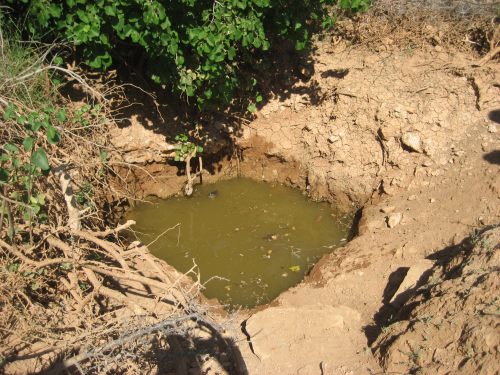The Future Of Cobalt: Congo's New Export Policy And Its Effects On Global Supply

Table of Contents
Congo's New Export Policy: A Deep Dive
Congo's new export policy represents a significant shift in how the country manages its cobalt resources. The government aims to maximize the economic benefits derived from this valuable commodity while simultaneously addressing long-standing concerns about environmental sustainability and ethical mining practices.
Key Changes in the Policy:
The new policy encompasses several key changes designed to reshape the cobalt industry within the DRC:
- Increased Taxes and Royalties: The government has implemented substantial increases in taxes and royalties levied on cobalt exports, aiming to capture a larger share of the profits generated from this resource. This includes a significant rise in export duties and a new regime for mining licenses.
- Stringent Environmental Regulations: New environmental regulations are being enforced to curb the environmental damage associated with artisanal cobalt mining. These regulations include stricter guidelines on waste disposal, water management, and land reclamation.
- Emphasis on Local Processing and Refining: The policy strongly encourages, and in some cases mandates, the processing and refining of cobalt within the DRC before export. This aims to add value to the raw material and stimulate the domestic economy.
- Impact on Small-Scale Miners: The new regulations present both challenges and opportunities for small-scale miners. While stricter environmental rules may initially impact their operations, government initiatives aimed at formalizing the sector offer potential for increased support and access to better resources.
The rationale behind these changes stems from the Congolese government's desire to ensure that the country benefits more directly from its vast cobalt reserves. This includes generating higher revenues for national development, protecting the environment, and fostering a more sustainable and equitable mining sector.
Impact on Global Cobalt Supply
Congo's new export policy is poised to have a significant ripple effect on the global cobalt supply chain. The changes are likely to introduce both uncertainty and increased costs.
Price Fluctuations and Market Volatility:
The policy's implementation is expected to lead to considerable price fluctuations in the global cobalt market:
- Potential Price Increases: Increased taxes, stricter regulations, and the shift towards local processing are likely to increase the overall cost of cobalt production and, consequently, its price.
- Increased Uncertainty for Manufacturers: Companies relying on cobalt for their products face increased uncertainty regarding future supply and pricing. This necessitates strategic planning and risk mitigation.
- Mitigation Strategies: Manufacturers can mitigate price volatility through strategies such as hedging, securing long-term supply contracts, and diversifying their sourcing.
The chart below (insert chart/graph here illustrating potential price scenarios) illustrates the potential impact of the new policy on cobalt prices over the next five years. The automotive and electronics industries, which are heavily reliant on cobalt, will be particularly affected by these price fluctuations.
Ethical Sourcing and Sustainability Concerns
The DRC's cobalt mining sector has long been plagued by ethical concerns, including child labor and unsafe working conditions. Congo's new export policy aims to address these issues, but the path to achieving ethical and sustainable cobalt sourcing remains challenging.
Addressing Human Rights Issues:
- Policy Aims: The new policy aims to address human rights issues through stricter enforcement of labor laws, improved worker safety standards, and increased transparency within the mining sector.
- Enforcement Challenges: Effective enforcement remains a major challenge, especially in the informal artisanal mining sector, where monitoring and regulation are difficult.
- Role of International Organizations: International organizations and certification schemes play a crucial role in promoting responsible cobalt sourcing through audits, traceability initiatives, and promoting best practices.
Initiatives like the OECD Due Diligence Guidance for Responsible Supply Chains of Minerals from Conflict-Affected and High-Risk Areas provide frameworks for companies to source cobalt ethically. Transparency and traceability throughout the supply chain are essential for verifying that cobalt is not sourced from exploitative practices.
Alternative Cobalt Sources and Technological Innovations
The dependence on the DRC for cobalt raises concerns about geopolitical risks and supply chain vulnerability. This has spurred efforts to explore alternative cobalt sources and develop cobalt-free technologies.
Exploring Diversification Strategies:
- Alternative Sources: Countries like Australia, Canada, and Madagascar are exploring cobalt mining as potential alternatives. However, ramping up production to meet global demand will take time.
- Cobalt-Free Batteries: Intensive research and development efforts are focused on developing cobalt-free battery technologies, such as lithium iron phosphate (LFP) batteries. While promising, these technologies are still under development and face challenges in terms of energy density and cost-effectiveness.
- Recycling: Recycling end-of-life products, such as electric vehicle batteries, offers a significant opportunity to recover cobalt and reduce reliance on primary mining.
The feasibility and timeframe for these alternative solutions vary considerably. While alternative sources and recycling are gaining traction, technological advancements in cobalt-free batteries will play a decisive role in shaping the future of cobalt demand.
Conclusion
Congo's new export policy marks a significant turning point for the global cobalt market. The policy's impact on cobalt prices, ethical sourcing, and supply chain security is far-reaching. While aiming to improve the DRC's economic benefits and address ethical concerns, the policy also introduces complexities and potential disruptions. Staying updated on the future of cobalt requires close monitoring of these developments and active engagement in promoting responsible and sustainable cobalt sourcing. Learn more about ethical cobalt sourcing and understand the implications of Congo's cobalt export policy to contribute to a more sustainable future for this critical mineral.

Featured Posts
-
 Leon Draisaitls Hart Trophy Bid A Deep Dive Into His 2023 2024 Season
May 15, 2025
Leon Draisaitls Hart Trophy Bid A Deep Dive Into His 2023 2024 Season
May 15, 2025 -
 Action Bronson Responds To Jaylen Browns Luke Combs Mix Up
May 15, 2025
Action Bronson Responds To Jaylen Browns Luke Combs Mix Up
May 15, 2025 -
 Ottawa Senators Vs Toronto Maple Leafs Nhl Playoffs Game 5 Live Stream Free And Legal Options
May 15, 2025
Ottawa Senators Vs Toronto Maple Leafs Nhl Playoffs Game 5 Live Stream Free And Legal Options
May 15, 2025 -
 Ufc 314 Paddy Pimbletts Post Fight Weight Balloon
May 15, 2025
Ufc 314 Paddy Pimbletts Post Fight Weight Balloon
May 15, 2025 -
 Township Water Supply Contaminated Residents Face Health Risks
May 15, 2025
Township Water Supply Contaminated Residents Face Health Risks
May 15, 2025
